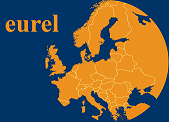Montenegro, the smallest of former Yugoslav republics was the last to become independent (in 2006). Although a small country, its population is divided in at least five major ethnic groups and at least four churches and religious communities. These divisions spill over to the political scene and make all issues regarding identity, particularly related to religion, highly sensitive and divisive. Montenegrin government decided to regulate its relations with religious communities and churches in the country through agreements, signed one by one with each of them. Following the example of Croatia, it did not adopt a new law on religious communities before the agreements were signed, but the one from the communist era is still valid. The new law had been in the Government's plans for years and only in 2015 the Draft Law on Religious Freedoms finally entered legislative procedure. However, while the agreements were signed with the Islamic and Jewish communities and with the Holy See, Serbian Orthodox Church, which has by far the highest number of followers, did not sign it and it loudly opposes adoption of new law. The main problem are relations between the Montenegrin Orthodox Church, which is non-canonical but has some support in the ruling political elite, and the Serbian Orthodox Church, onetime ally of the ruling party, now close to certain opposition groups, with deteriorating relations with the Government since the split from Serbia.
This presentation will analyze the agreements signed with religious communities and their political impact, and also the relations between political parties and religious communities regarding the process of adoption of new legislation and their interaction/confrontation on different fields (from religious figures speaking on political events to property issues, cultural heritage protection, foreign policy stands etc.).
- Other

 PDF version
PDF version

